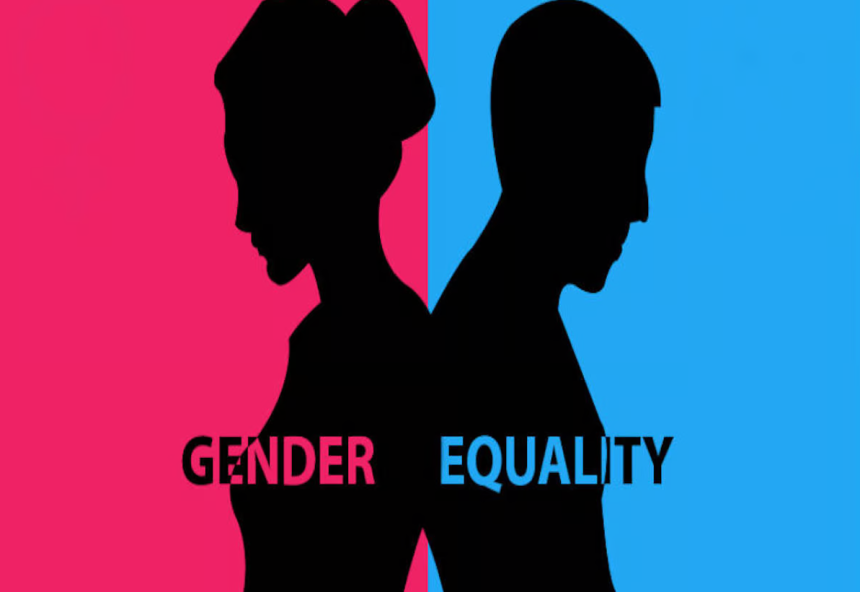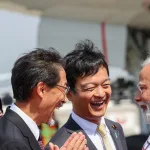In today’s rapidly evolving world, the call for gender equality resounds more urgently than ever. As societies progress and global interconnectedness increases, the disparities between genders become more glaring, demanding a concerted effort to bridge these gaps. Gender equality is not merely a social ideal; it is a fundamental human right and a prerequisite for sustainable development.
Gender equality is a fundamental human right that all people in a given society are entitled to. It includes justice and equality among all the members of the society. Gender equality is crucial in order to achieve vision of a society where everyone has an equal right to survival, security, growth, and participation. Over the years gender equality and women emancipation have been at centre stage in almost all progressive political ideologies. While as in the developed countries, the campaigns have not been much spectacular in the last few decades owing to their assimilation (women’s) in most of the human endeavors, social and political processes, the demands for rights and liberation of women from the shackles imposed by society, communities and institutions of power.
Amid the agreements and disagreements on what truly constitutes women empowerment and emancipation, some leeway has been observed with the clash of cultural values. Since the idea of women’s emancipation began to take root and later evolved into a global trend, many people have debated the subject, and the debate has really exploded. The definition is often misinterpreted as a mission to free women from men’s shackles. When the idea made its way to the east, it became even more profound. The discourse exploded with vehemence and revenge against patriarchal cultures as a result of this intrinsic error. As a result, women’s liberation became a beloved subject that was debated in conferences, forums, and other programmes around the world, where various ideas such as equality, empowerment, and other similar words originated. It was emphasized that women need more space and opportunities for self-expression.
At one time it seemed that the concepts like equality and empowerment are the real things which can solve the problems faced by women folk, but now it appears that the question, although very valid, have got blown out of proportion. The idea that women empowerment means empowering women against men has rendered a severe blow to the otherwise noble cause. An impression has been created in the minds of females to view males as ruthless oppressors. This has adversely affected the scheme of life at the level of family and society.
Need of the hour is that the concept of women emancipation is made a part of overall task of social correction and not an exclusively female adventure. Despite the fact that the world has made significant progress in gender equality, a significant gap still exists in many parts of the world. Gender inequalities in economic participation and opportunity, educational achievement, health and survival, and political empowerment must all be addressed. Educating children about the value of gender equality from an early age might be a good start in that direction.
One of the core arguments for gender equality is its undeniable link to economic prosperity. Studies have consistently shown that countries with higher levels of gender equality tend to have stronger, more resilient economies. When women participate fully in the workforce, they contribute to higher productivity and economic diversification. Companies that prioritize gender diversity often see increased innovation and better financial performance. Closing the gender gap could add trillions of dollars to the global economy, an opportunity we can ill afford to ignore.
Beyond economic benefits, gender equality is essential for social stability and development. Societies that value and promote equality tend to be more peaceful and cohesive. Gender discrimination, on the other hand, perpetuates cycles of poverty and violence, hindering progress and fostering social unrest. By ensuring equal opportunities and rights for all, we can build communities that are inclusive and just, where everyone has the chance to thrive.
Education plays a pivotal role in achieving gender equality. Empowering girls and women through education leads to numerous positive outcomes, including improved health, reduced child mortality, and increased political participation. Educated women are more likely to invest in their families and communities, creating a ripple effect that benefits society as a whole. Yet, millions of girls worldwide are still denied access to education due to cultural norms, economic barriers, and political instability. Addressing these challenges requires sustained investment and policy reforms that prioritize gender-sensitive approaches.
The fight for gender equality also demands a critical examination of deeply entrenched societal norms and stereotypes. Traditional gender roles and biases continue to limit opportunities for both women and men, constraining their potential and aspirations. Media, education systems, and workplaces must challenge these stereotypes and promote diverse, inclusive narratives that celebrate the contributions of all genders.
Moreover, gender equality is inextricably linked to broader issues of human rights and justice. Women and girls around the world face pervasive violence and discrimination, from domestic abuse and sexual harassment to systemic biases in legal and political systems. Combating these injustices requires robust legal frameworks, effective enforcement mechanisms, and a cultural shift towards zero tolerance for gender-based violence.
The COVID-19 pandemic has further underscored the importance of gender equality. Women have been disproportionately affected, facing increased domestic burdens, higher rates of job loss, and greater exposure to health risks as frontline workers. This crisis has highlighted the need for gender-responsive policies that address the unique challenges women face and ensure their full participation in recovery efforts.
In conclusion, the pursuit of gender equality is not a matter of choice but a moral and practical imperative. It is essential for economic growth, social development, and the realization of human rights. As we navigate the complexities of the modern world, let us commit to fostering a society where gender equality is not an aspiration but a lived reality. Only then can we unlock the full potential of all individuals and create a future that is equitable, prosperous, and just for everyone.
(Author is Asst Professor, has done PhD in Sociology and writes on various social issues)








